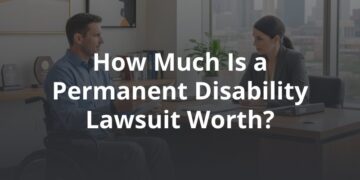This year, vaping titan Juul has been the focus of lawsuit after lawsuit. These cases come on the heels of an outbreak of vaping-related illnesses; as of February 18, 2020, the CDC had received reports of 2,807 cases of vaping hospitalizations, with nearly 68 confirmed deaths.
Injuries and deaths are not the only reason individuals are suing. Victims also allege that Juul business practices led to nicotine addiction, particularly among young adults and teens. Plaintiffs claim that the company’s marketing techniques and product design encourage teens to pick up vaping, citing a stark increase in teen vape use as proof.
The cases bear an eerie resemblance to the slew of lawsuits against the tobacco industry that occurred in the 1990s. At that time, a wave of litigation concluded with over 40 states suing tobacco companies for violating consumer protection laws.
Experts say that the claims in these lawsuits mirror the focus of previous tobacco lawsuits — that is, that vaping companies used negligent marketing to drive up use among minors. Furthermore, plaintiffs argue that Juul and other vape manufacturers downplayed the dangers of vape use and potentially violated federal laws for nicotine advertising and health disclosures.
Legal experts do not expect these cases to go away anytime soon. In fact, we may be at the beginning of an outbreak of vaping injuries and a wave of vaping litigation. At FVF, our lawyers reviewed existing Juul lawsuits and created this fact sheet for those considering pursuing action.
Youth Addiction in Juul Lawsuits
Some lawsuits focus on teens who became addicted to vaping. These cases argue that Juul used negligent — and potentially illegal — business practices to target underage users. According to the FDA, Juul and other vaping products were used by over 20 percent of highschoolers in 2018, which amounts to roughly 3.05 million teens. That number represents a 78 percent increase in teen vape use — troubling statistics, to say the least.
The most recent Juul lawsuits allege that it was unsavory marketing campaigns that led to this rise. Specifically, Juul has been accused of:
- Omitting safety disclaimers on its products
- Purposefully designing vaping devices to make them easy to hide from parents and teachers
- Targeting young people by positioning products as hip and trendy through social media marketing and youth-oriented images and messaging
- Visiting schools and camps to lead “educational programs”
- Promoting flavored vapes that are more popular with teens
Vaping Lung Injuries
Teens and their parents are not the only ones alleging harm at the hands of Juul. Many victims of vaping lung injuries have also brought forth lawsuits against Juul and other vaping manufacturers. Reports of such injuries have risen sharply this year. The CDC has been flooded with thousands of reports and has documented several deaths, leading the agency to declare vaping injuries an “outbreak.” It has also given the condition a new name: e-cigarette or vaping product use-associated lung injury, or EVALI.
Beyond claiming damages for injuries, there are several other issues that future lawsuits may center around:
- Unproven safety claims. Juul has repeated called their products “safe,” yet the outbreak of injuries suggests otherwise.
- Positioning products as smoking cessation tools. The FDA has not officially approved vapes as a way to quit smoking, as it has with certain medications and nicotine patches. And yet, Juul and other vaping manufacturers have repeatedly claimed that their products’ main function is to help smokers quit. Preliminary research shows that while vaping devices may have some merit as a smoking cessation tool, users that aren’t able to quit are much more likely to continue vaping than continue using other nicotine-replacement tools.
- Inadequate safety labeling. Prior to 2018, vape manufacturers were not required to label products as potentially addictive. Safety disclaimers may be a key element of future litigation.
Successful Juul Lawsuits
In October, parents and teachers had reason to rejoice: in a settlement with the Center for Environmental Health, Juul agreed to curtail its marketing practices to help curb vape use by minors. Specifically, the settlement forbids the vaping giant from advertising at concerts and sporting events that are attended by individuals under 21. Additionally, Juul representatives are not allowed to visit schools, and models used in advertising must be over 28 years old.
However, those restrictions do nothing to help teens already struggling with nicotine addiction. Furthermore, experts say it’s possible that Juul will not comply with the terms of the settlement, citing the tobacco industry’s long history of not following through with commitments to restrain use by minors.
While there have been some successes in the case against vaping companies, those victories mean little to victims already suffering from vaping lung injuries or addiction. If you are experiencing one of those issues, contact one of our vaping injury lawyers for a free case evaluation. We’ll help you understand the best route for your case and help you build a strong legal strategy to take on vaping manufacturers. Get in touch today to learn more.








